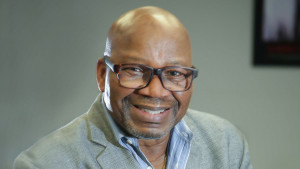With knowledge flowing from group to group, Black organizations can use that knowledge to provide programming to their clients. The focus of Black Seed is on improving employment outcomes for Black youth. Still, employment is just one side of the broader socioeconomic ecosystem that involves Black individuals, communities, organizations, institutions and entrepreneurs.
Entrepreneurship is a big part of the Black community, not least because working for ourselves relieves the stress of inhabiting non-Black spaces at work and the racism it embodies. Of all self-employed Canadians, the percentage of self-employed Black men grew from 1.8 to 3.5 percent from 2001 to 2018; the figure was 1.3 percent to 2.2 for Black women.
While Black self-employment/entrepreneurship is growing, there are many roadblocks to success, and funding may be the largest. Many Black businesses do not extend beyond a few employees without proper funding. According to a Statistics Canada survey, Black businesses were half as likely to have more than five employees. That means Black people fail to scale their companies compared to other groups. As a result, Black dreams of autonomy and success have a much lower ceiling without proper funding.
Over the pandemic new forms of funding have sprouted. Governments, individual donors and large institutional donors are acknowledging their systems' inherent bias against Black groups. Instead, large institutions are giving B3 organizations (Black-owned, Black led and serving) the reins to fund activities for their communities. Instead of waiting to be noticed by predominantly white funders, Black-led organizations like the Foundation for African Canadian Economics (FACE), the Foundation for Black Communities, and the BlackNorth Initiative are being empowered to disperse funds as they see fit. As a result, these organizations have a better toehold into the community and understand the barriers facing Black small and medium-sized enterprises (SMEs). With a sustainable funding model, the Black ecosystem can take another step into full bloom.
I sat down with Tiffany Calendar, the chief executive officer of FACE. FACE is a Black-led non-profit organization that provides resources and information to Black communities across Canada to accelerate wealth creation for Canadians of African descent.
With help from the federal government, the Development Bank of Canada, and other private institutions, FACE received an endowment of $160 million for Black entrepreneurs under the Black Entrepreneurship Fund. Through this funding mechanism, entrepreneurs can apply for micro and macro loans that will be assessed and dispersed by FACE. The hope is that B3 organizations will not have the prejudice of other Canadian institutions and can use their networks within the Black community to reach out to would-be entrepreneurs better than the federal government or private banks.
But properly addressing the Black community’s structural inequities is not as simple as giving money to Black organizations. So while empowering FACE to act as a distributor of funding is a good step, I wanted to talk to Tiffany about how her group is trying to overcome all the other financial and institutional hurdles affecting Black entrepreneurs from Victoria to Labrador.
So What makes FACE unique, in your opinion?
FACE is unique because it aims to enable economic mobility for Black Canadians. Our first strategy to create generational wealth was through entrepreneurship, and we successfully co-designed Canada’s first loan fund for Black entrepreneurs to ensure access to capital. We are committed to developing sustainable economic resources, capacity building and strategic partnerships to push the next generation to obtain financial security and autonomy. FACE is uniquely positioned as it pioneers an institution that will continuously support Black Canadians through economic development.
What role can institutions like banks, governments and corporations, many of who have been a part of anti-Black racism historically and presently, play in uplifting the community, if any?
There has been a growing awareness of how institutions and systems in Canada have been discriminatory against the Black community. This consciousness allows for conversations that address these barriers and progress toward change. Financial freedom is essential, and access to capital is a fundamental pillar of this community. Banks, corporations and the government are the guardians of resources that will enable Black people to access pathways to generational wealth creation.
The pandemic has caused structural changes at countless organizations regarding workforce health and well-being, leading to the rise of remote work, mass quitting etc. Has FACE dealt with any issues around employees and well-being since the pandemic?
Our organization launched during the pandemic, so working remotely was mandatory at our genesis. Since opening our doors, our team has scaled from eight to thirty-two full-time employees, and I am thankful for each of them. Their hard work contributes to tangible results that will make a positive impact. They are motivated by the mission, but we must be mindful of the weight of being a changemaker. We encourage our team to prioritize their wellness and have built flexible work-from-home policies to accommodate better work-life balance. Lastly, we offer all FACE employees a group benefits package with physical and mental wellness services.
The government can slowly act on issues involving the Black community. How does FACE manage its relationship with different institutions while pressing for immediate change around the economic landscape of African Canadians?
FACE continuously works with the Government of Canada to evolve initiatives to advance policy goals like small and medium enterprise creation, social finance and business ownership among under-represented groups. Although systemic change and influencing the private sector takes time, FACE’s priority is to be a leading voice affirming the necessity to enact new policies and act as a change agent by proving through our initiative that investing in Black communities will create positive social impact and contribute to Canada’s GDP.
You received an endowment of $160 million from the federal government. What costs are there other than loans to Black businesses?
FACE received 30 million dollars from the government of Canada and partnered with the BDC, which contributed 130 million to the Black Entrepreneurship Loan fund. All loans disbursed from the 30 million dollar fund administered by FACE are recapitalized with the principal and interest paid by borrowers. The operational expenses of our organization are funded independently from the loan fund.
What mechanisms are in place should some loan recipients fail and not be able to repay the loan? And how competitive are interest rates?
Through our financial institution partners, where the loans are held, we monitor and contact applicants who experience soft / early-stage delinquency and beyond. The process seeks to ensure clients are aware and understand their plans to mitigate the situation and provide support, guidance, and work with them to rehabilitate.
We continue to revise our strategies to ensure we can easily adapt and work with our clients to assess the challenges they may have encountered while repaying their loans and support their actions to get back on track. We encourage our clients to reach out if they are experiencing difficulties, and we work with our institutional partners to be active in the rehabilitation strategy for borrowers.
Our interest rates are competitive and in line with the nature and parameters of the deals we offer and are, at this time, tied to the prime base rate of our financial institution processing partners. Interest rates are specific to each borrower based on various business and financial metrics (e.g. credit scores). Our key objective is different from that of a traditional bank, but that does not absolve us from managing risk to ensure the continuity of the fund.
In what ways does FACE ensure that loan programs reach those who have difficulty getting loans? For example, some cannot provide accurate information, co-signers, or collateral, especially in the Black community. Is there a way to move past these barriers that pass creditworthiness checks?
Although FACE is known for the Black Entrepreneurial Loan Fund, it is a well-developed and thought-out ecosystem that is continuously growing and progressing. This allows for not only access to capital but also resources that support and educate.
FACE has created an ecosystem of partners across the country to aid and support the various needs of an entrepreneur. Spanning business plan development, taxation, cash flow management and bookkeeping, FACE offers regular masterclasses and training modules, building an interactive and innovative platform to serve Black Canadians. FACE also provides a handful of templates, webinars and training manuals that are easily accessible and aid in application preparation.
Lastly, FACE has announced its new collaboration with TD Bank to launch the new Propelling Black Entrepreneurship Program this spring to offer 50 businesses subsidies to prepare with professional firms their business plans, financial statements and tax filings, which are necessary to apply for a commercial loan to demonstrate finance readiness.
The program will also offer training on business best practices. We know there are challenges for many entrepreneurs looking to expand their businesses to the next level, and this program was developed to support Black entrepreneurs, at any stage of their journey, to give a helping hand in providing financially strong applications for financing.
To learn more about the Black Entrepreneurship Fund, follow this link

 By
By 








